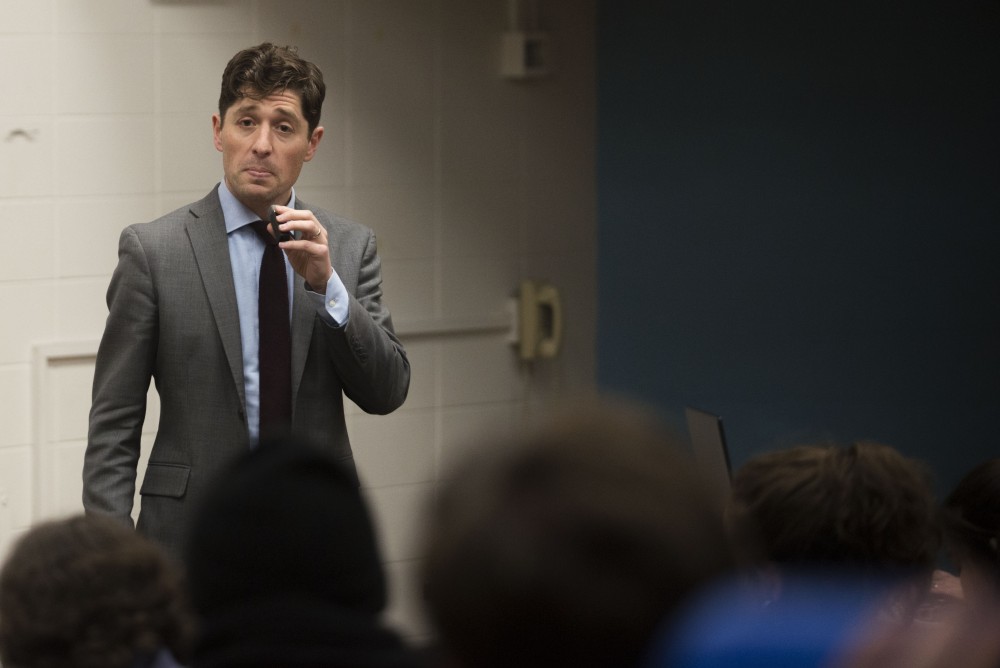Minneapolis Mayor Jacob Frey discussed student housing, among other policy issues, Tuesday at a Minnesota Student Association forum.
During the meeting, Frey outlined his policy priorities before taking questions from students. Frey also touched on food instability and community-police relations.
Creating affordable housing in is a top priority for his administration, Frey said.
“We’ve got a crisis right now. We’ve got [housing] values that are going up, rents are rising through the roof and people are getting displaced from some of the neighborhoods that they’ve made wonderful to begin with,” Frey said.
Frey said housing subsidies and tackling unequal supply and demand are two major ways the City of Minneapolis can increase affordable housing opportunities. While students don’t typically qualify for subsidized housing, Frey said the City needs to seek alternative solutions.
“The reason that the subsidy hasn’t been allocated is it’s hard to determine what is the financial ability of each respective student to pay,” Frey said. “That’s not a good excuse though … We need to be finding ways to provide affordable housing for the student population.”
MSA member Apostolos Kotsolis asked Frey how the City can address student food insecurity. Kotsolis said affordable food options are often inaccessible to those living on campus.
“If you live in the dorms or you live in an apartment, for example in Yudof, then you don’t really have a grocery store that can help you within walking distance,” Kotsolis said.
Frey said that while increased food options like Trader Joe’s downtown have helped bring affordable food to campus, many options are still too expensive for students.
“We’ve got some more expensive grocery stores set up but the range of cheap, affordable grocery stores where you’re not spending seven bucks for a box of Honey Nut Cheerios, they’re limited,” he said.
Frey also discussed a number of City projects, including the proposed Upper Harbor Terminal project, a riverfront development in north Minneapolis that would include both City park space and private development.
While Frey said the project will increase economic inclusion in the city, MSA sustainability committee member Lukas Zumwalt said the project could ignore concerns of current residents.
“It’s being painted by … some of the other City representatives as this great movement to revitalize the area, but if you think with a lens of basic gentrification it’s going to historically force out the underserved communities,” Zumwalt said. “That was my big critique because he definitely painted it as a great opportunity even though there’s been a neglect of people.”
MSA Forum Speaker Isaiah Ogren invited Frey to speak at the meeting. MSA and City leaders could collaborate to develop a dialogue on issues like sexual assault in the future, he said.
Ogren said he hopes to host other City leaders in the future.
“I certainly hope [discussions] will continue,” he said.








